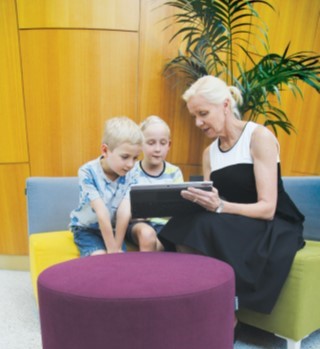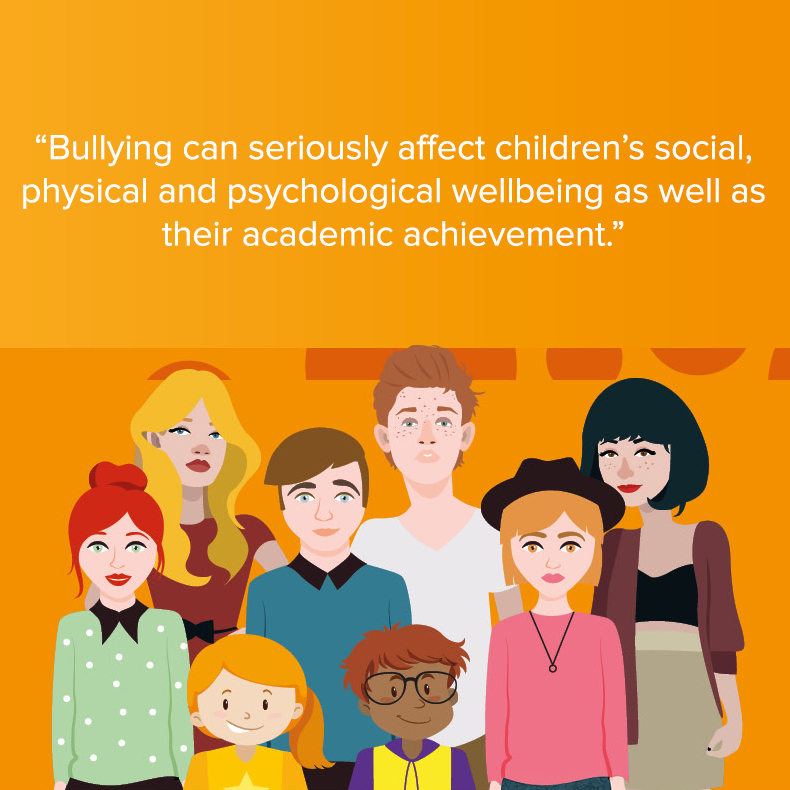Search

Professor Donna Cross and her team at The Kids Research Institute Australia have challenged and overturned damaging attitudes that saw bullying tolerated in childhood.

Infographics to easily learn more about bullying and what actions to take should bullying be an issue in your school or community.
Bullying is now regarded as a health problem and not just a disciplinary problem. Increasing evidence shows both traditional bullying (e.g. hitting, teasing) and cyberbullying have lasting effects on young people (both those who bully and those who are bullied), including damage to self-esteem, academic results and mental health.
Young people’s use of mobile phones and access to the Internet has increased dramatically in the last decade, especially among those aged 9–15 years. Young people now rely on information and communication technology for much of their social interaction, which can have both positive and negative effects on their social and emotional well-being. Of particular concern is the extent to which digital technology (DT) provides opportunities for cyberbullying.
Bullying behaviour often increases in late childhood and peaks in early adolescence. While interventions to address bullying behaviour typically encourage students to report bullying incidents to school staff, students are often reluctant to report incidents for fear it will worsen their situation or because they lack confidence in a staff members’ ability to intervene effectively. This study explores school staff responses to student reports of bullying behaviour.
Bullying in schools has been associated with poor academic and mental health outcomes in students. While students are often encouraged to report bullying incidents to school staff, some students avoid reporting incidents as they lack faith in staff members ability to intervene.
Interest in how the school built environment impacts bullying behaviour has gained momentum in recent years. While numerous studies have identified locations within schools where bullying frequently occurs, few studies have investigated the potential conceptual pathways linking school locations to bullying behaviour.
Despite the wealth of knowledge about the impact of bullying victimization, information gaps exist about how traditional and cyber bullying in early adolescence is associated with emotional wellbeing, namely, indicators of positive wellbeing.
Several meta-analyses have demonstrated that bullying prevention programs are successful in reducing bullying. However, scant research addresses if and how such anti-bullying efforts affect long-term internalizing health problems and even less on later use of pharmacotherapy and psychotherapy.
The prevalence of bullying worldwide is high (UNESCO, 2018). Over the past decades, many anti-bullying interventions have been developed to remediate this problem. However, we lack insight into for whom these interventions work and what individual intervention components drive the total intervention effects.
